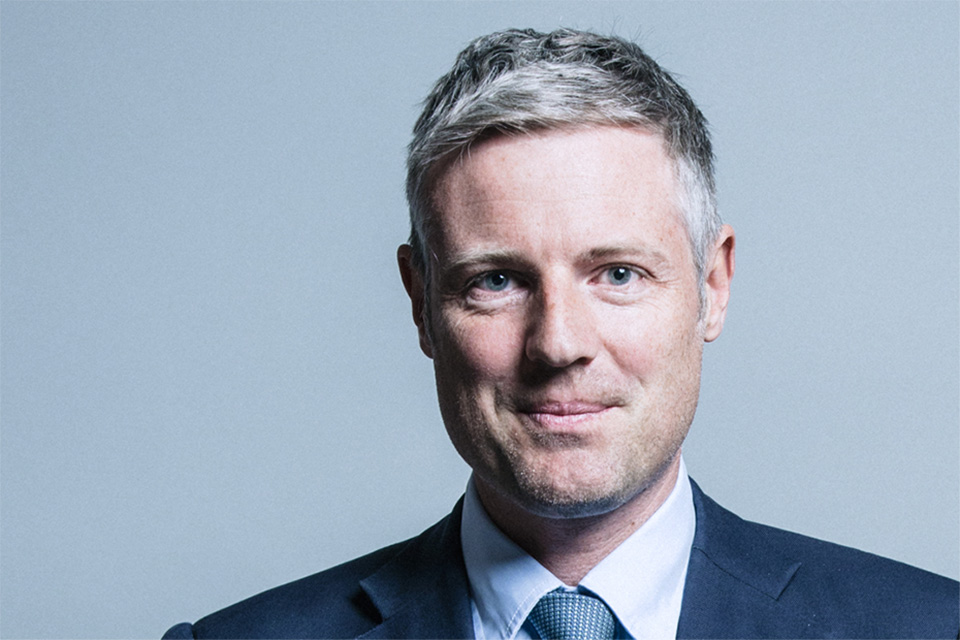Environmental sustainability and resilience for a clean and green recovery
Statement by Lord Goldsmith at the High-Level Panel at Chatham House’s Global Forum on Forest Governance

Thank you.
Koh-joe Oh-woosoo Afri-yee, known in Ghana as Sir John, died last week.
He would have been joining us to reflect on our longstanding partnership and on Ghana’s approach to combatting illegal logging, and promoting trade and sustainable forest land use. I send my condolences to his family.
It is an honour to be speaking to you today. I hope you are all safe and well.
The COVID-19 crisis has had an unprecedented impact on the world.
It has exposed our vulnerabilities – and is, I hope, a wake-up call to the consequences of our abusive relationship with the natural world.
But terrible though this experience has been for so many families around the world – the brutal truth is that it will be dwarfed by the effects of climate change and environmental degradation – unless we act very quickly – and decisively.
Politicians everywhere are designing their economic recovery packages. So far, governments around the world have committed $9 trillion to COVID recovery.
And how they choose to spend those funds will have ramifications for decades.
We can stick with the status quo; bailing out high-carbon, environmentally damaging industries and locking in decades of emissions.
Or we can choose to make environmental sustainability and resilience the lens through which we map out our recovery.
You won’t be surprised to hear that I favour the latter course.
And I am delighted that our Prime Minister has committed to build back better and build back greener.
As COP26 Presidents, we’ll be making the case at every opportunity for a clean and green recovery – and we are asking countries to introduce greater ambition in their Nationally Determined Contributions.
Our focus of course will be on clean energy, zero-emissions vehicles, finance, adaptation and resilience.
And at its core, we will be a major emphasis on nature.
The reason, simply, is that we cannot tackle climate change without also tackling environmental destruction, and vice versa.
For example in addition to providing livelihoods for over a billion people and a home to some 80% of the world’s terrestrial biodiversity, deforestation is the second biggest source of emissions.
We are destroying them at a rate of around thirty football pitches every minute.
We are told that nature-based solutions could provide a third of the cost-effective climate change mitigation we need over the next decade, while helping communities adapt to become more resilient. In truth it is probably far higher than 30%.
But despite that, they attract just 3% of global climate funding. That makes zero sense.
At the end of last year, the British PM announced that we are doubling our International Climate Finance to £11.6bn (approx. $14bn).
And even more importantly, we have said that we will be spending much of that uplift on nature.
As co-hosts of the next climate COP, we will be asking other countries to do the same. We need protection and restoration of nature to be a core priority globally.
But we know it’s not all about public money. We need international collaboration, and structural change.
That means, among other things, looking at the incentives – public and market.
From the Amazon rainforest to the peat swamps of the Cuvette Centrale, we all rely on forests. Yet their value barely registers – worth more dead than alive.
Financial incentives that destroy forests outstrip those in favour of their protection by over 40:1.
In the UK, we are leading by example in switching our agricultural subsidies away from rewarding destruction towards a system of public money in return for public goods – like environmental stewardship.
Consider that agriculture causes around 80% of deforestation, yet the top fifty food-producing countries spend over $700bn a year in support for often destructive land use.
Imagine the impact if global support shifted in favour of sustainability – that’s more than five times the budget of all the world’s aid agencies combined.
We have seen some successes in recent years with illegal timber. Much of that has been the consequence of many years of cooperation and partnership between countries – coming together to tackle the illegal trade, promote the responsible and sustainable alternative, and to protect forests.
Building on that work, we want to bring consumer and producer countries together at COP26 to address the market drivers of deforestation.
We know in the UK that even while we are getting our own house in order, our environmental footprint extends vastly beyond our shores. The commodities we import alone come with devastating levels of deforestation.
So we are determined to clean up our own supply chains, and to work directly with other countries – both consumer and producer countries – to deliver change internationally. I commend China for taking steps towards excluding illegal forest products from its own gigantic supply chains.
If we get it right, we can protect forests and livelihoods in consumer and producer countries around the world.
And the government to government dialogue that we plan for COP26 will draw heavily on the work that many of you at this Forum have been involved in. Indeed lessons drawn out at this meeting can help shape our preparations for action at COP26.
I invite all countries to join this collaborative effort – and especially so many here today.
We’re committed to working closely with all of you, and with China as hosts of the all important CBD COP – and I hope that what we learn today will enrich a government to government dialogue at COP26.
As countries respond to COVID-19, the decisions we take in coming months will have impacts for decades to come.
We have all the tools we need for a green, resilient recovery, so it’s time to get to work– together.
Thank you